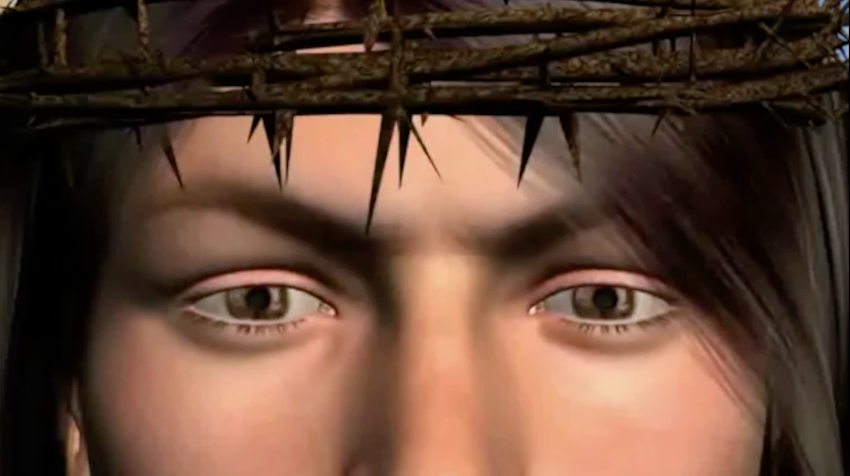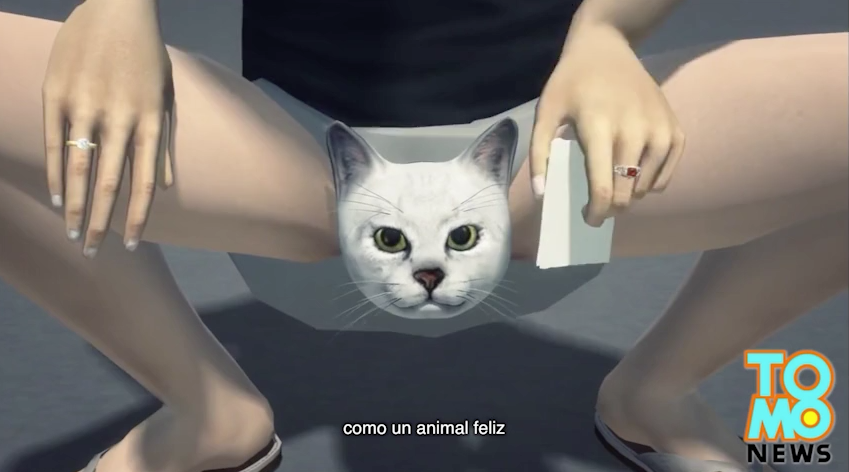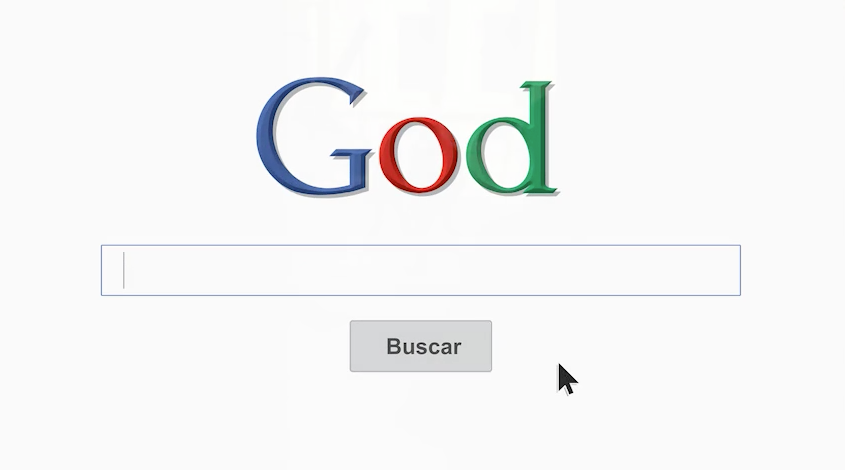Our Not Father
MUTA is an annual celebration of audio-visual heists and corporate malfeasance located in Peru. If your pictures are stolen, if your work is stuffed with samples and remixings, this fest provides a temporary home. While much of the work adheres to a lingering and bewildering emulsion fetishism, replaying orthodoxies from the fringe’s canonical past (white, male, American), there was one movie that thumbed its nose at strictures of any kind.
María Cañas’s picture tempest creates a rare freshness with its fuck you approaches. She’s been busy since 1990 making paintings and photos, and then slamming into the movie world in 1996 with nearly 20 productions to date. She’s been named the “iconoclastic pharaoh of guilt-cinema.” And little wonder. Using clips boosted from YouTube, Padre No Nuestro (Our Not Father) (15 min 2019) offers a seizure of fragments, slyly voting for animal rights while taking aim at the church.
Why not begin with the Canadian icon Leonard Cohen, the beloved, gravelly-voiced singer, epithet machine, Zen paradigm. He reads from The Energy of Slaves (1972). “Good father, since I am now broken down, no leader of the burning world, no saint for those in pain, no singer, no musician, no master of anything, no friend to my friends, no lover to those who love me, only my greed remains to me… give her to me and let me be for a moment in this miserable and bewildering wretchedness, a happy animal.”
A pussycat calls out from between a stranger’s legs, dogs chew cocks off in neighbourhood glory holes, pigs are bomb-carrying terrorists. It seems the animal revolution has begun. Later on, the old hierarchies of master and slave, animal and human, are replayed in the robot universe. At last, a slave to call my own. Especially the “most human robot” that lays down shit every time it moves.
Rock, paper or kill all humanity?
The devil exclaims at the long awaited reappearance of Jesus Christ. It’s Jesus! But this Jesus is a blank-faced robot of confusion. News? I’m here to bring news? Bewildered by an unbiblical flood of representations, he appears as one amongst a galaxy of possible avatars, belief stations, storylines. Where to begin? But also: the movie suggests, that after the internet killed God, a new frontier opened, where we are newly isolated, alone with our ghost pictures, giving blow jobs and sticking our digits into other worlds. Let’s watch Jesus get whipped, and then you can whip my virtual self. Korean leaders swipe right to behead their audience. Let’s pause for a little Tinder office ghost sex, before a baby jumps on a keyboard. I guess even the oldest amongst us are children of the internet, searching for pictures of our fundamental desires even as we deliver data to our corporate masters.
Another in a line of new Jesus prototypes appears as “President” Mark Zuckerberg, who is confirmed as a robotic loop, a dictatorial nerd whose global dominion has become a friend to right-wing governments everywhere. His followers are crossfit fanatics, dragging crosses across jogging terrains. Later, a tongue-in-cheek Jesus lookalike (I only tell the truth when I’m joking) offers not the last judgment, but a plea to stop judging entirely. Don’t judge! Create!
God makes a late appearance as a trans performance artist, dolled up in a gold leaf headdress. God’s primary interest? Art of course. “If art doesn’t violate norms, it’s not art. It’s crafts.” Amen to that.
When was the last time I saw a movie so urgent, so witty, so laugh out loud funny? I didn’t think a Jesus haunting could be so good-humoured but here we are. With the delight and joy that only good-natured destruction makes possible, the artist creates a post-cinema confection that relies on games and gaming, which is the true inheritor of classic cinema. The avatars that appear here are drawn from game worlds, with their caricatures of medical health and revenge, love and death. The smooth surfaces and simulated encounters allow each of us to be alone once again in a hostile universe, as our old cocktails of fear and desire pour into the overflow, the glut, the deluge. This remixology is also a source for new variations on old stories. Can we imagine Sisyphus happy?
“This guy finds a magic lamp. He rubs it and a genie appears to grant him three wishes. He says, ‘I want to be everywhere at the same time, know everything and be invisible.’ The genie turns him into the internet.”




